P2181 indicates that there’s an observed cooling system temperature that is too high or too low. It will come up in the scan tool as “Cooling System Performance”.
The trouble with P2181 is that by itself, it’s not narrowing much down. There could be a problem with the cooling system, temperature sensor, or even the ECU (mostly on Chrysler products).
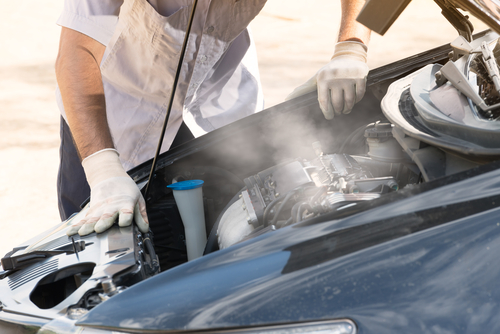
P2181 Symptoms
- Engine overheating
- Engine too cold
- No/low heat
- Stalling, rough idle
If the engine is stalling and running rough after getting this code, it is likely that the head gasket could be blown if it got hot. If the engine is running cold it could run rough because it’s too rich.
P2181 Causes
When left by itself, there are many different issues that can cause P2181. How you go about looking is going to depend on if the temp gauge is showing too hot or too cold. We’ll go into that in depth in the diagnosis best practices section directly below.
Bad Temperature Sensor
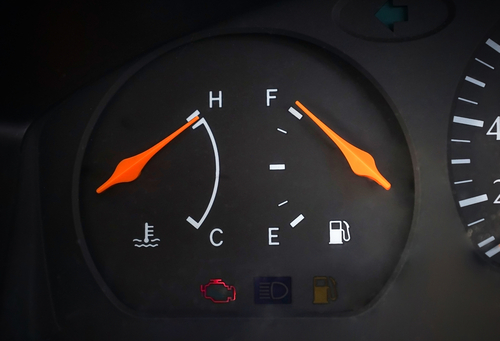
Since the temperature is “out of range” it is very often the temperature sending unit itself that is the problem. If the vehicle is clearly overheating, the gauge would be working fine.
Always trust the gauge until you can verify that it is actually wrong.
Cooling System Issues
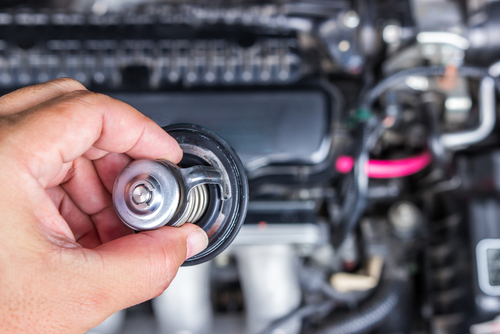
- Bad Thermostat– The thermostat controls the amount of coolant that enters the engine. If it stays open, the engine may never warm up all the way. If it won’t open at all, the engine will overheat FAST, usually within a few minutes of the engine starting.
- Water Pump– If the water pump isn’t working properly, coolant will not be able to move through the engine and remove the heat, which can cause it to overheat.
- Bad Radiator– A clogged radiator will slow the flow of coolant and cause overheating.
- Low Coolant– If the coolant level is low, there won’t be enough to cool the vehicle. Filling it back up will temporarily solve the problem if the leak is small, and won’t do anything if the leak is big.
Bad ECM/PCM/ECU

An engine computer goes by many names. No matter what you call it, computer issues have been known to cause P2181. This is particularly true for Chrysler made vehicles (Jeep, Chrysler, Dodge, Plymouth, Ram).
P2181 Diagnosis Decision Tree
Before proceeding with diagnosing P2181, make sure that there are no other trouble codes. Since this code has so many potential causes, another code can help you narrow it down considerably.
1. Check the Coolant Level
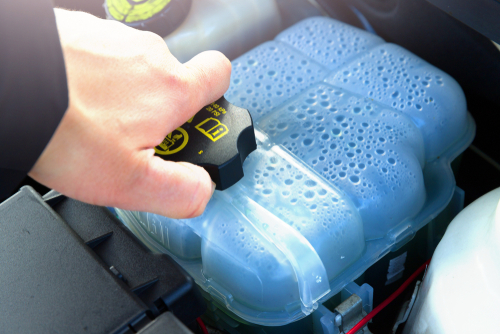
Make sure that you check the coolant level before doing anything else. It very well could be that the coolant is gone if you are getting P2181.
If it is empty, you’ll need to add more coolant. Never add coolant to an overheating engine, as that can cause a head to crack. You’ll need to find where the leak is coming from. Start by looking under the vehicle and seeing if you can find any dripping coolant. Follow the drips up to the source. This can be more challenging than it sounds.
If coolant is full, it’s time to test the temperature sending unit.
2. Test the Temperature Sending Unit
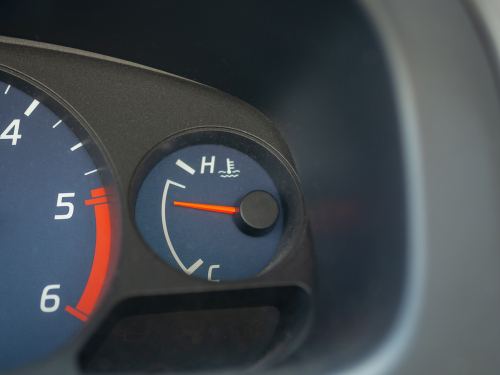
Since this code is indicating that the perceived engine temperature is out of range, it would be best to first take a look at the engine temperature sensor and make sure that it is functioning properly.
You can skip to 3a⬇️ if your car or truck is visibly overheating.
If the gauge is reading low, try turning the heater on after the car has been running for a while. If the air coming out of the vents is not hot at all, that would be a good confirmation that the gauge is reading properly. Go ahead and jump to 3b⬇️.
Here’s how to check to see if your sending unit has faulty wiring, how to use a multimeter with cool/hot water to test the sensor (Youtube).
If the sending unit is bad, replace it and should clear P2181. If not, let’s move on to step 2.
3. Does the Gauge Read too Hot or too Cold?
Ok, now we know the temp gauge is working properly. Let’s continue diagnosing P2181 by determining if the engine is running too hot or too cold.
3a. Too Hot
If the engine is running too hot, please jump to step 4⬇️.
3b. Too Cold
If the engine is running too cold, it is most likely going to be the thermostat that is at fault. Replacing the thermostat is usually a pretty straightforward repair.
4. Thermostat
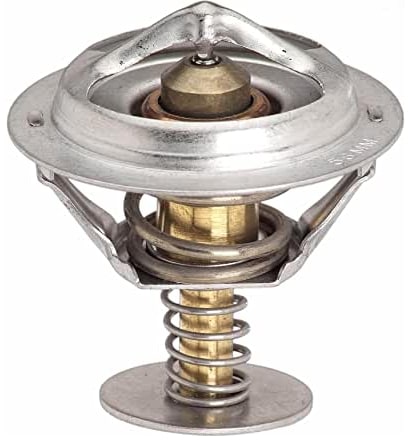
We know from step 1, that the engine is full of coolant. This leaves the radiator, water pump, or thermostat. Since the thermostat is easiest to check, we’ll start there.
With the engine warm (but not overheating, shut it down before that happens) squeeze the hose going to the water pump from the radiator. If it is limp, move down to step 6, water pump.
If the hose is hard to squeeze, we know that there is solid water pressure. The thermostat may not be opening.
Is the heater working? If the thermostat is all the way closed, it shouldn’t be. That would be enough proof that the thermostat is not opening.
If the heat is working just fine, let’s move to step 5.
5. Radiator
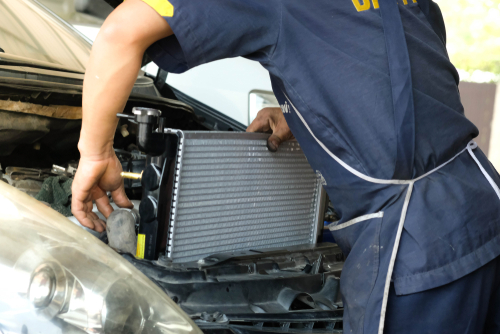
If there was good water pressure at the radiator hose, and the heater seemed to work fine. You are going to need to take a look at the radiator. Here’s how to diagnose a bad radiator.(YouTube).
6. Water Pump
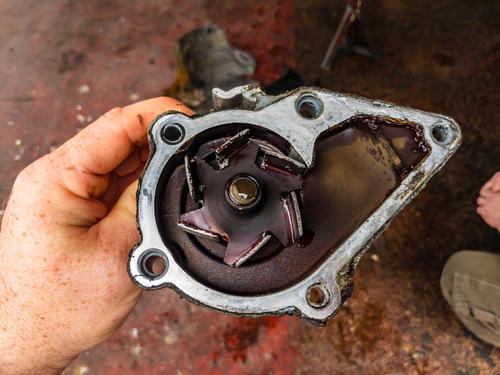
Finally, the water pump. If you’ve made it all the way down here, it’s very likely that the water pump is at fault. Have you heard any squeaking noises coming from the vehicle?
That’s a pretty good indication that the water pump is bad. Here’s good water pump diagnostic video.
7. ECM
If you’re looking at the ECM, it’s likely that you have found nothing visibly wrong with the temperature sending unit, and nothing appears to be wrong with any part of the cooling system. It could be the ECM that is at fault.
This is a known problem in some Chrysler made vehicles such as the:
- Chrysler Sebring, 2007-2009, 2.7L or 3.5L
- Chrysler Magnum, 2007-2010, 2.7L or 2.5L
- Dodge Journey, 2009, 2.7L or 3.5L
- Dodge Challenger, 2009, 2.7L or 3.5L
- Chrysler Town and Country, 2008-2009, 3.3L or 3.8L or 4.0L
- Plymouth Grand Voyager, 2008-2009, 3.3L or 3.8L or 4.0L
Before touching or considering the ECM/PCM, you should still verify that the engine temp is correct with a temperature gun, and that the sending unit is working properly. At that point you’d need the PCM refreshed, which your dealer should be able to do for you.
P2181 Conclusion
Hopefully, this article helped you diagnose p2181 in your vehicle. It’s certainly not the easiest code to figure out.
